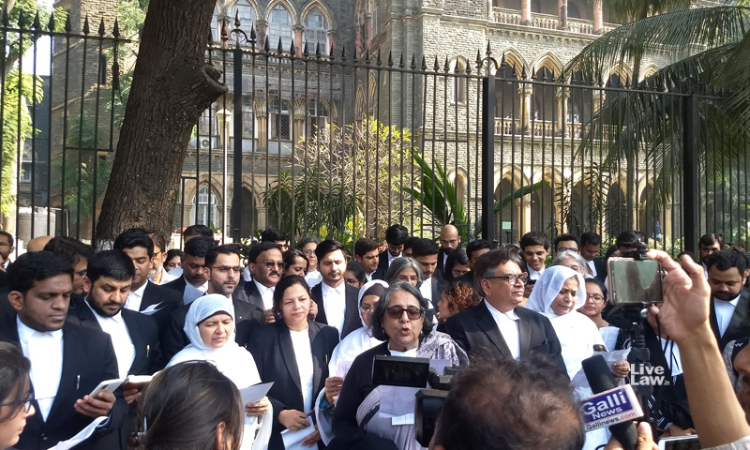Bombay HC Advocates Recite Preamble In Support Of CAA-NRC Protests
Nitish Kashyap
20 Jan 2020 6:36 PM IST

Next Story
20 Jan 2020 6:36 PM IST
Almost a hundred lawyers gathered outside Gate Number 6 of the Bombay High Court and recited the Preamble to the Constitution of India to mark their solidarity with the protests against Citizenship Amendment Act, NRC and NPR taking place all over the country. The group was led by Senior Advocates like Navroz Seervai, Mihir Desai and Gayatri Singh. The Lawyers Against CAA...
